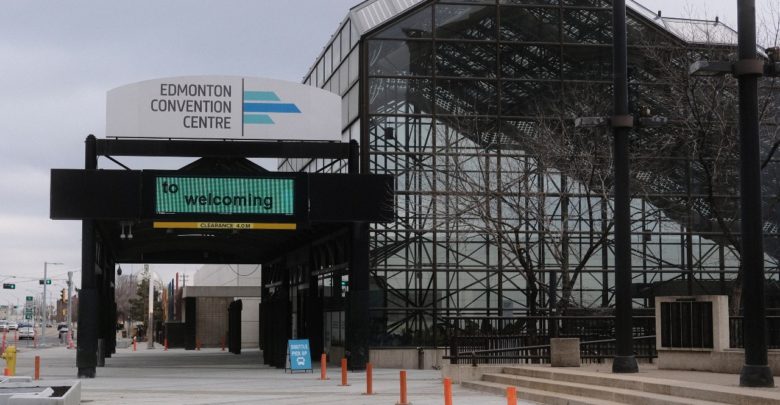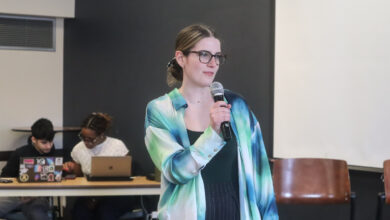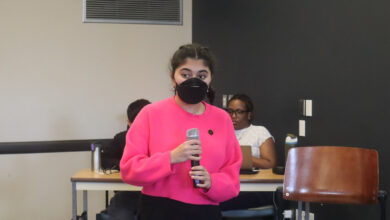 Connor Lengkeek
Connor LengkeekThe COVID-19 pandemic has opened Edmonton’s eyes to solutions for the homelessness crisis. Well, sort of.
Edmonton Mayor Don Iveson is requesting the provincial and federal governments to provide funding to buy underused hotels and apartments for homeless communities. Personally, I believe this is a fantastic idea, since real estate prices have decreased during the pandemic and it’s the perfect time to buy housing. Despite my skepticism in why Edmonton is beginning to look at these options now, providing a safe place before winter begins in earnest is essential for the protection of homeless communities.
Homeless communities fear the risk of infection and often prefer to stay out in the open to maintain social distancing rather than at drop-in facilities where hundreds of people have been. Hotels and apartments that are at risk of closing are ideal locations for homeless people, due to the amount of rooms and improved living conditions. It’s understandable why Iveson is concerned, given the on-coming winter combined with the situation of relatively low capacity in drop-in facilities for homeless people.
Homelessness has been around in Edmonton for a long time and, according to the Homeward Trust association, homeless has decreased since 2008. In this case, Iveson is using his pandemic recovery plan to benefit homeless communities, which is likely a good idea. This leads to the next question, however, of “how is Edmonton going to afford this operation during a pandemic?”
It’s safe to say that Canada is in debt from the pandemic and winter is approaching fast. Although the plan is to buy these hotels and apartments, how is Edmonton going to afford to run them during winter? While city council is asking provincial and federal governments for funding, this money is far from guaranteed. Beyond this, Iveson suggests that his plan is valuable for taxpayers but doesn’t explain how he will communicate these benefits to taxpayers.
If Iveson can’t procure the funding before winter, then the solution appears to be evicting homeless people from their community because it’s difficult for Edmontonians to see them on the streets.
The dilemma here is that our options to help the homeless community is to either buy these underused hotels and apartments or remove homeless people from their camps. The second option simply forces homeless communities from one area into another; although, this relocation does have the unintended benefit of creating wider awareness of the homeless problem our city faces.
Perhaps a point should be made that even bringing awareness to the homelessness crisis is important for forcing Edmontonians to do something. The terrible fact that police evict homeless camps from their locations, with deadlines sent from the city, has an opposing benefit of awareness to the cause. Location is essential to whether or not this homeless crisis will be talked about; when homeless communities are in high-profile spaces, Edmontonians must recognize the issue in our city. This includes local businesses and everyday citizens who are complaining about the homelessness situation, which forces the city to start taking this problem seriously.
When it comes to the city’s proposed solution, I feel conflicted. On the one hand, if Edmonton does not get funding from the provincial and federal government, how will we not only buy these locations but run them afterwards? In this case, what is the solution to help homeless communities through the winter and the pandemic, besides using police force to remove homeless camps? One would expect council members to find ways to help homeless communities even if funding doesn’t come through, besides the easy police-forced-eviction solution.
The other side of me agrees with Iveson’s plans and wants to secure the funding to protect the homeless community as soon as possible.
It turns out that Edmonton’s solution for ending homelessness is more complicated than it initially appears. Overall, I have positive feelings in helping homeless communities, but my skepticism of how this will happen remains.




